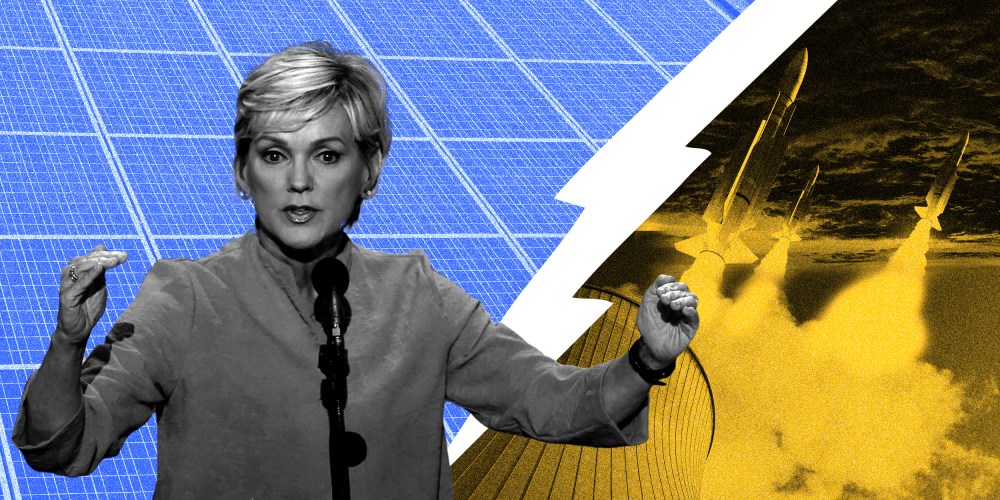President-elect Joe Biden added another luminary to his climate team last week when he named former Michigan Gov. Jennifer Granholm as his choice to head the Energy Department. Granholm is a great pick for what Biden wants her to do; it’s the department that isn’t quite the right fit — and it’s time to reorganize it so its perceived mandate matches its actual mandate.
Despite its name, dealing with energy production isn’t the Energy Department’s main function, which understandably many people might assume.
Because, despite its name, dealing with energy production isn’t the Energy Department’s main function, which understandably many people might assume. The majority of the department’s budget is focused on maintaining, upgrading and guarding the country’s nuclear weapons. As Daryl Kimball, the executive director of the Arms Control Association, told The Washington Post: “The Energy Department is actually the Nuclear Weapons Department.”
Rick Perry had to learn that the hard way soon after he accepted President Donald Trump’s offer to run the Energy Department. He “gladly accepted, believing he was taking on a role as a global ambassador for the American oil and gas industry that he had long championed in his home state,” Texas, The New York Times reported in January 2017. Only later did he learn that he was going to be “the steward of a vast national security complex he knew almost nothing about, caring for the most fearsome weapons on the planet, the United States’ nuclear arsenal.”
That’s why world-renowned physicists were at the helm of the Energy Department during the Obama administration. It’s ironic that Stephen Chu, a Nobel Prize winner who ran the department from 2009 to 2013, was the first secretary in decades to have to focus intensely on energy issues. An extra $39 billion — $10 billion more than his annual budget — landed in his lap as part of the 2009 stimulus bill, which he then hustled to spend on new renewable energy projects.
Chu was followed by Ernest Moniz, another star physicist, who had run MIT’s Energy Initiative before he joined the administration. Moniz’s biggest claim to fame came when he was named as a co-negotiator during the high-level talks that led to the 2015 nuclear deal between the U.S. and other major world powers on one side and Iran on the other. His grasp of nuclear issues was so complete that his reputation was needed to sell the deal domestically. As an Obama administration official told The Times: “The theory is that Ernie’s judgment on that matter is unassailable.”
The department’s dual nature vexed Biden’s transition team.
The department’s dual nature vexed Biden’s transition team, which was reported to have “struggled over whether the Energy Department should be led by someone steeped in its core mission, ensuring the safety of the country’s nuclear arsenal, or whether Mr. Biden should select someone with a vision for leading a clean-energy transformation.”













